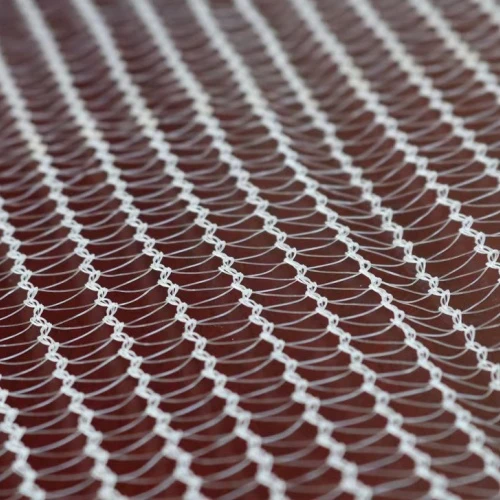-
 Afrikaans
Afrikaans -
 Albanian
Albanian -
 Amharic
Amharic -
 Arabic
Arabic -
 Armenian
Armenian -
 Azerbaijani
Azerbaijani -
 Basque
Basque -
 Belarusian
Belarusian -
 Bengali
Bengali -
 Bosnian
Bosnian -
 Bulgarian
Bulgarian -
 Catalan
Catalan -
 Cebuano
Cebuano -
 China
China -
 Corsican
Corsican -
 Croatian
Croatian -
 Czech
Czech -
 Danish
Danish -
 Dutch
Dutch -
 English
English -
 Esperanto
Esperanto -
 Estonian
Estonian -
 Finnish
Finnish -
 French
French -
 Frisian
Frisian -
 Galician
Galician -
 Georgian
Georgian -
 German
German -
 Greek
Greek -
 Gujarati
Gujarati -
 Haitian Creole
Haitian Creole -
 hausa
hausa -
 hawaiian
hawaiian -
 Hebrew
Hebrew -
 Hindi
Hindi -
 Miao
Miao -
 Hungarian
Hungarian -
 Icelandic
Icelandic -
 igbo
igbo -
 Indonesian
Indonesian -
 irish
irish -
 Italian
Italian -
 Japanese
Japanese -
 Javanese
Javanese -
 Kannada
Kannada -
 kazakh
kazakh -
 Khmer
Khmer -
 Rwandese
Rwandese -
 Korean
Korean -
 Kurdish
Kurdish -
 Kyrgyz
Kyrgyz -
 Lao
Lao -
 Latin
Latin -
 Latvian
Latvian -
 Lithuanian
Lithuanian -
 Luxembourgish
Luxembourgish -
 Macedonian
Macedonian -
 Malgashi
Malgashi -
 Malay
Malay -
 Malayalam
Malayalam -
 Maltese
Maltese -
 Maori
Maori -
 Marathi
Marathi -
 Mongolian
Mongolian -
 Myanmar
Myanmar -
 Nepali
Nepali -
 Norwegian
Norwegian -
 Norwegian
Norwegian -
 Occitan
Occitan -
 Pashto
Pashto -
 Persian
Persian -
 Polish
Polish -
 Portuguese
Portuguese -
 Punjabi
Punjabi -
 Romanian
Romanian -
 Russian
Russian -
 Samoan
Samoan -
 Scottish Gaelic
Scottish Gaelic -
 Serbian
Serbian -
 Sesotho
Sesotho -
 Shona
Shona -
 Sindhi
Sindhi -
 Sinhala
Sinhala -
 Slovak
Slovak -
 Slovenian
Slovenian -
 Somali
Somali -
 Spanish
Spanish -
 Sundanese
Sundanese -
 Swahili
Swahili -
 Swedish
Swedish -
 Tagalog
Tagalog -
 Tajik
Tajik -
 Tamil
Tamil -
 Tatar
Tatar -
 Telugu
Telugu -
 Thai
Thai -
 Turkish
Turkish -
 Turkmen
Turkmen -
 Ukrainian
Ukrainian -
 Urdu
Urdu -
 Uighur
Uighur -
 Uzbek
Uzbek -
 Vietnamese
Vietnamese -
 Welsh
Welsh -
 Bantu
Bantu -
 Yiddish
Yiddish -
 Yoruba
Yoruba -
 Zulu
Zulu
Cost of Welded Wire Mesh Fencing for Your Property Needs
Understanding Welded Mesh Fence Prices
Welded mesh fencing is a popular choice for both residential and commercial applications due to its durability, versatility, and ease of installation. The pricing of welded mesh fences can vary significantly based on several factors including material type, gauge, size, and installation costs. In this article, we will explore these factors to help you better understand what influences welded mesh fence prices.
Material Types
The most common materials used in welded mesh fencing are steel and stainless steel. Steel welded mesh fences are generally less expensive than their stainless steel counterparts due to lower material costs. However, steel fences are prone to rust and corrosion, particularly in harsh weather conditions, unless they are galvanized or coated with protective paint. On the other hand, stainless steel is more durable and resistant to corrosion, making it suitable for coastal areas or environments with high moisture levels, but this comes at a higher price.
Gauge and Size
The gauge of the mesh also plays a significant role in determining the price. A higher gauge number indicates a thinner wire, while a lower gauge number signifies a thicker wire. For instance, a 6-gauge welded mesh fence is sturdier and more expensive than a 10-gauge option. The dimensions of the fence, including height and length, will also directly affect the overall price. Custom sizes may incur additional charges, while standard sizes tend to be more economical.
Coatings and Finishes
weld mesh fence price

Apart from the basic material, welded mesh fences can be treated with various coatings that enhance their durability and aesthetic appeal. Powder-coated or vinyl-coated fences can resist rust and wear better than untreated options. These additional coatings might increase the upfront cost but can lead to savings in maintenance and replacement in the long run.
Installation Costs
Another key consideration is installation. While some property owners may choose to install the fence themselves, professional installation can greatly affect the final price. Installation costs vary based on the complexity of the project, site conditions, and the contractor’s fees. It’s essential to factor these costs into your overall budget when considering a welded mesh fence.
Market Trends
Market conditions can also influence welded mesh fence prices. Fluctuations in the cost of raw materials, changes in labor costs, and regional demand can all affect pricing. It is advisable to shop around and get multiple quotes from suppliers and contractors to ensure you receive the best deal.
Conclusion
In summary, the price of welded mesh fencing depends on a variety of factors, including material type, gauge, size, coatings, and installation costs. When planning for a welded mesh fence, it is crucial to evaluate not only the upfront costs but also the long-term benefits to ensure you make an informed decision. By understanding these components, you can better navigate the market and select a fencing solution that fits both your budget and your needs.
-
Shipping Plastic Bags for Every NeedNewsJul.24,2025
-
Safety Netting: Your Shield in ConstructionNewsJul.24,2025
-
Plastic Mesh Netting for Everyday UseNewsJul.24,2025
-
Nylon Netting for Every UseNewsJul.24,2025
-
Mesh Breeder Box for Fish TanksNewsJul.24,2025
-
Expanded Steel Mesh Offers Durable VersatilityNewsJul.24,2025











